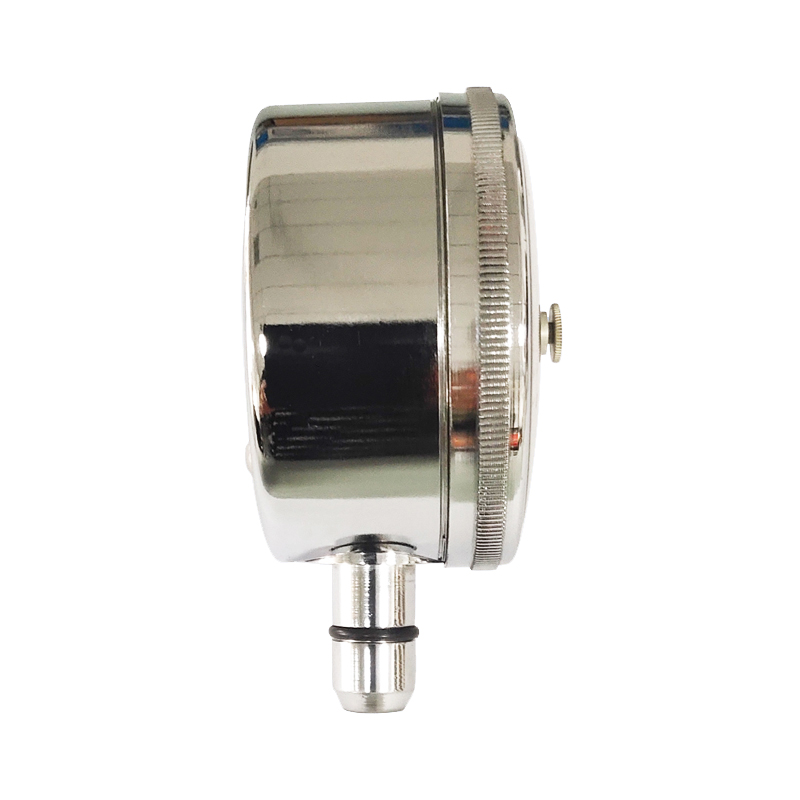
Sep . 23, 2024 07:22 Back to list
Differential Pressure Measurement Techniques in Pharmaceutical Manufacturing and Quality Control
Understanding Wholesale Differential Pressure Gauges in the Pharmaceutical Industry
In the pharmaceutical industry, ensuring the integrity, safety, and efficacy of products is paramount. One of the critical parameters monitored during the production process is differential pressure. Wholesale differential pressure gauges play a vital role in this measurement, safeguarding both product quality and compliance with regulatory standards.
Differential pressure gauges are instruments designed to measure the pressure difference between two points within a system. In the pharmaceutical sector, they are primarily used to monitor cleanrooms, filter systems, and various process lines, ensuring that operations occur under controlled conditions. This is essential because even minute deviations in pressure can indicate potential contamination or filter failures, which might compromise product integrity.
Several applications within the pharmaceutical industry benefit from using differential pressure gauges. For instance, environments such as cleanrooms must maintain a specific pressure differential to prevent the ingress of contaminants. The gauges help ensure that the pressure is maintained within designated limits, thereby protecting sensitive products from exposure to airborne particulates.
Moreover, differential pressure gauges are crucial when monitoring air filtration systems, such as HEPA filters. These filters are designed to trap particles and germs, and regular monitoring of pressure differentials across these filters can alert operators to potential blockages. A rise in differential pressure often indicates that a filter is becoming clogged and requires maintenance or replacement, thereby preventing risks associated with compromised air quality in manufacturing areas.
wholesale differential pressure gauge in pharma industry

When selecting a differential pressure gauge for pharmaceutical applications, several factors must be considered, including accuracy, temperature stability, and compliance with industry standards. It's crucial that these instruments provide reliable readings under varying conditions to ensure they meet stringent pharmaceutical regulations. Manufacturers often look for gauges that come with certification to validate their accuracy and reliability.
Implementing wholesale differential pressure gauges not only aids in maintaining compliance with regulatory bodies, such as the FDA and EMA, but also enhances operational efficiency. By ensuring that systems operate within their designed specifications, organizations can reduce downtime associated with system failures or contamination events.
Furthermore, with advancements in technology, many modern differential pressure gauges are equipped with digital displays and remote monitoring capabilities. This allows for real-time data collection and analysis, enabling quicker decision-making processes. Such innovations help pharmaceutical companies enhance their quality control measures, aligning with the industry's ever-evolving demands for precision and accountability.
In conclusion, wholesale differential pressure gauges are indispensable tools in the pharmaceutical industry. Their role in monitoring and maintaining optimal pressure differentials not only supports compliance with regulatory standards but also protects product quality and consumer safety. As the industry continues to innovate, the importance of reliable measurement and monitoring systems like differential pressure gauges will only grow, ensuring that pharmaceutical products remain safe and effective for public use.
-
High-Precision 5 Valve Manifold Differential Pressure Gauge Suppliers
NewsApr.29,2025
-
High-Precision Diaphragm Vacuum Pressure Gauges Manufacturers & Quotes
NewsApr.29,2025
-
Omega Differential Pressure Gauges High Accuracy & Durability
NewsApr.28,2025
-
Low Pressure Differential Pressure Gauges Precision Solutions & Quotes
NewsApr.28,2025
-
Digital Diaphragm Pressure Gaauge Precision Measurement & OEM Quotes
NewsApr.28,2025
-
Differential Pressure Gauge China Price High-Accuracy & Best Quotes
NewsApr.28,2025
